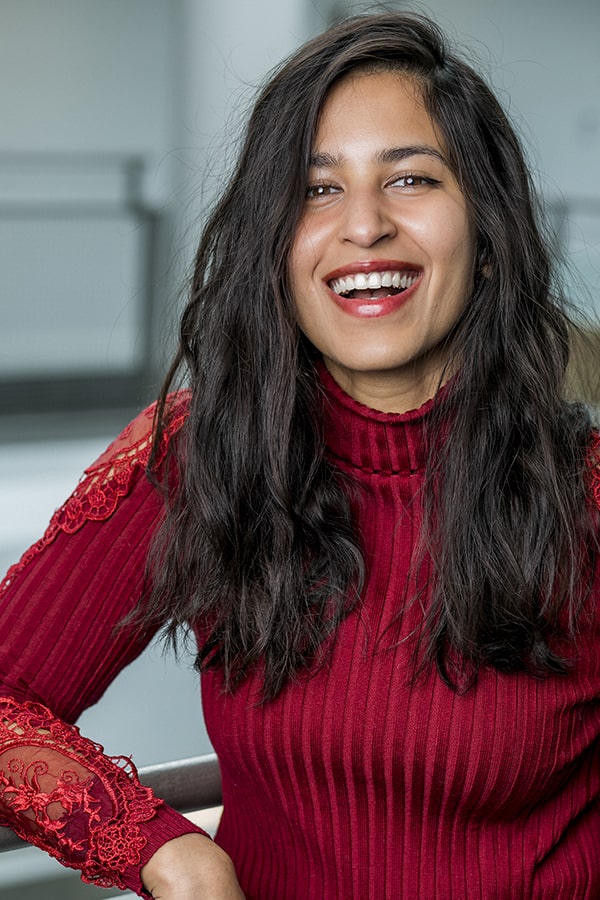Faculty Spotlight: Manasvini Singh
By Stacy Kish
The research of Manasvini Singh, assistant professor in the Department of Social and Decision Sciences, lies at the intersection of decision theory and health policy.
Tell me about your scholarly work.
I apply theories of decision-making from psychology and economics to “real-world” data to see whether these behavioral theories hold up in the real world and quantify the consequences of such behaviors in the wild, so to speak. I am particularly interested in how physicians make decisions, the effects of individual factors and organizational environments on such decisions, and their implications for patient welfare. An applied economist by training, I use modern econometric techniques to identify such causal relationships using large, secondary datasets.
How is your scholarly work adding to the greater field?
Much of what we know about human behavior and decision-making comes from lab experiments. My work complements and extends this research. While lab experiments allow for the careful development and testing of theory, much remains unknown:
- Do behaviors observed in the lab generalize to less “sanitized” settings?
- What types of factors trigger, moderate and/or suppress these behaviors in the world?
- What are the broader implications — good and bad — of these decision-making processes?
- How can we use this knowledge about how people make decisions to create a better society?
These questions cannot be answered as easily in the lab. At the same time, finding causal answers to these questions using observational data is difficult, because humans are messy and the environments they make decisions in are even messier. This is where my work comes into play. I try to find creative ways to use observational data to understand how humans make decisions and find ways to help them make better decisions.
How did you become interested in this topic?
I took a slightly circuitous route to this topic. I first became interested in health policy and then decision-making, specifically, by physicians. I remember during my Ph.D., I read a working paper that showed that a health policy didn’t have the intended effect because it failed to account for the “human element.” The paper focused on the Affordable Care Act — which expanded insurance coverage of behavioral health services under Medicaid. The ACA was expected to significantly increase the use of these services, which patient advocates saw as a big win. In reality, the effect was muted. Why? It turns out that Medicaid reimburses healthcare providers at lower rates than other insurance plans, so providers largely stopped accepting new Medicaid patients. This policy, which was supposed to increase healthcare access, ended up falling short because it didn’t account for core human behavior. That’s when I realized I was interested in the human element of it all — how people make decisions and why, and how it affects those around them and us as a society.
What are you most excited to accomplish as a faculty member at CMU?
There are few better places in the world to be interested in what I’m interested in than CMU. I sometimes feel like I’m at an all-you-can-eat buffet, with brilliant minds at every turn, everybody doing important and interesting work, with the potential for amazing collaborations with every conversation. I guess what I’m most excited about accomplishing at CMU — and especially SDS — is learning from the best in the field, engaging in research and pedagogy that is both impactful and intellectually fulfilling, and working with some of the smartest and innovative people (both students and faculty) out there.
What are your goals for the next generation of scholars?
I already feel like a dinosaur compared to some of the new Ph.D. students. They are all doing such important and clever work. My goals for the next generation of scholars then is to help them maintain this excellence while also working to make the profession less elitist, more welcoming to those previously marginalized (but whose perspective and expertise the profession direly needs) and generally less resistant to change.
The Faculty Spotlight series features new and junior faculty at the Dietrich College of Humanities and Social Sciences at Carnegie Mellon University. Stay tuned for our next installment to learn more about the dynamic and engaging research and scholarly work being conducted in the college.
